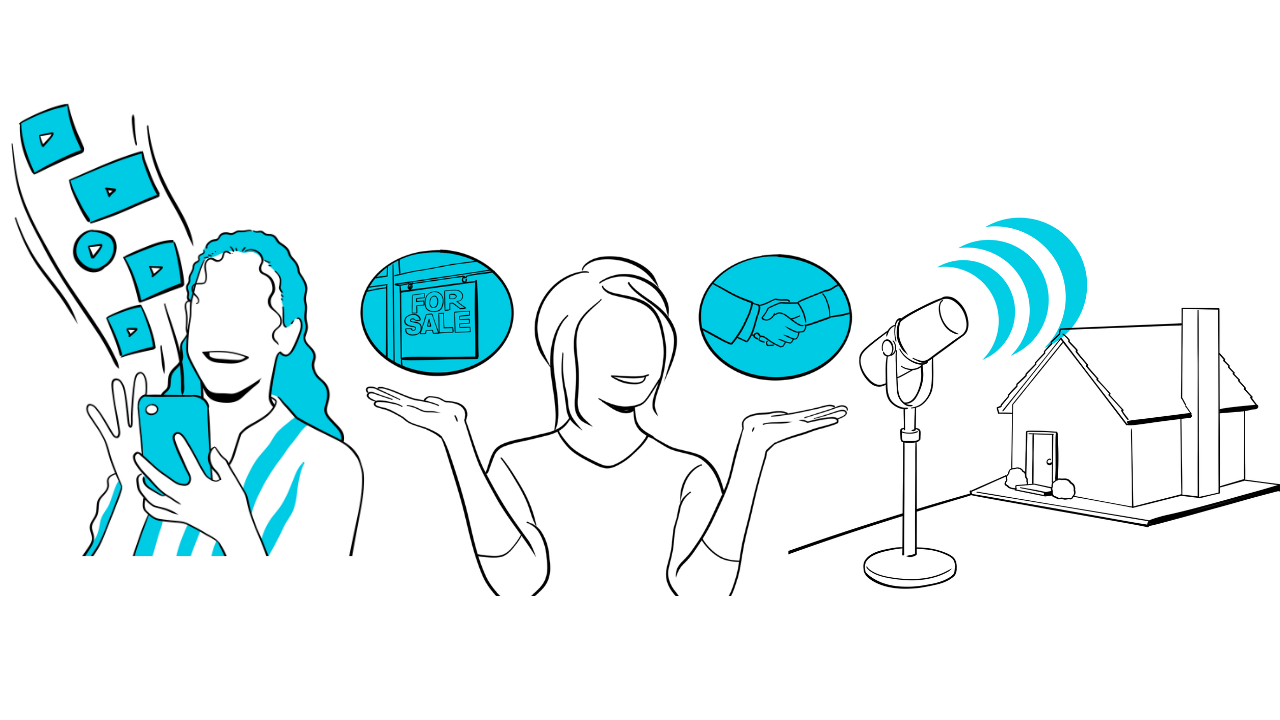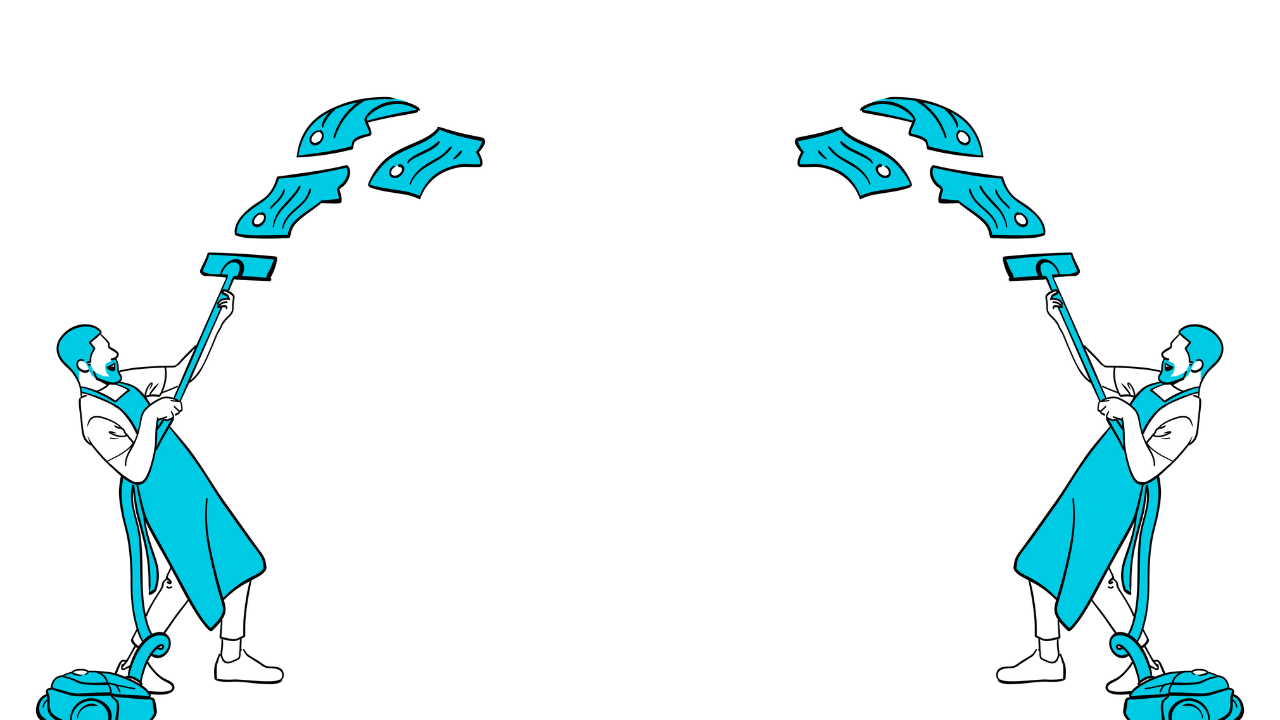Are you a pushy salesperson, or are you actually helping clients solve their problems so they trust you and enjoy working with you? Here's the difference.
Have you ever had someone try to convince you to buy a product or service? Likewise, have you ever had someone help you solve a problem with their product?
Which product did you buy? Which one did you recommend to others?
There’s an important lesson to be learned here: It’s the difference between trying to convince or persuade somebody to buy versus solving problems and closing more sales.
When it comes to making sales, a lot of salespeople use persuasion as a sales tactic to close more deals. But hear me out: when you help people solve their problems and prescribe your solution, whether it's a product or a service, it makes for an easier transaction. People enjoy the experience more, you will enjoy the experience more, and you're most likely going to close more sales.
Let's talk about the two different scenarios, and I'll give you some examples at the end of things you can say to help people solve problems and prescribe your product and your service as the solution.
If you’re taking the problem-solving route, your first step is to find out what your prospects need so you can prescribe a solution. Of course, that solution can be the product or the service you're offering. So, for example, if you're a real estate agent, you can ask the correct questions that will lead homeowners down the path of hiring you as their real estate agent, thus leading to a sale.
On the other hand, when you're convincing somebody or pressuring them to buy, it's like playing tug of war. You go back and forth, trying to convert the prospect you're working with into a sale. Maybe you're meeting with a home seller that needs to sell their home and you're at the listing presentation, trying to convince them that you're the best and that they should list with you.
When you use pushy sales tactics, you make people uncomfortable, and they're less likely to buy. So what should you do instead? Help them establish trust in you. Ask them questions in more of a consultative way by restating the problem that they're having or the challenges they're facing, then prescribing yourself as the solution.
A lot of people will say things like, “Hey, I'm the best. I'm number one. I sell more homes than anyone else in the area, and you should list with me because I'm going to sell your home fast!”
But if the person doesn't believe you (and there’s a good chance they won’t just take your word for it!), it's harder to close sales with that method.
Now, let's compare that to solving a problem and prescribing yourself as the solution. For example, in real estate, you can ask questions like:
- When are you selling your home?
- When are you moving?
- Why are you moving?
- What price do you hope to sell for?
- How did you come up with that price?
And then you dig for their challenges. What are the things that are the biggest concerns to them? Once you know the concerns, you can prescribe a solution by explaining exactly how you're going to overcome them. So if their concern is that they want to sell their home for $1 million and their home is only worth $900K — but a few agents already met them and said, “Oh, I can sell your home for $1.2 million,” you've got to figure out how to overcome that objection.
You can strategically solve the problem, versus pushing yourself as the best and fastest. So take the approach of asking questions and leading people to a decision, rather than coming in and trying to convince them.
Let me tell you a quick story to illustrate this point. When I was a new agent, a lot of other agents were cutting their commissions, trying to get the business. I would sit down with the seller at the listing table, and I'd say, “Listen, let's just talk about the different scenarios and the different commissions that you can pay. Put yourself in the shoes of a real estate agent. If you are a real estate agent, out showing homes, which homes would you most likely show? And then try to convince a buyer to buy? Just think of yourself as an agent, trying to feed your family and you're showing buyers you've been working with for a year. There's a home on the market where you're going to get paid a 2% commission, and there's a home next door with a pool that is a 3% commission. Which one are you going to show?”
Then, I’d get quiet, and I'd let them answer their question. But from there, I would let them make the decision, right? Based on how they answered, I'd lead them down a path to a solution. So that's just one really simple example, and it worked well when I was a new agent.
Since then, of course, I’ve heard a lot of different questions and scenarios and I have stories and scenarios to match. One time, I was dealing with a home in a flood zone, and I explained how I’d successfully sold a home in a similar flood zone before. I would just break it down. And then it wasn't like a pushy sales conversation. It was more explaining how we’d reach a mutual goal.
In essence, you want to present an option that makes sense for them as the seller. This approach is more helpful than self-serving, and it can make the job so much more pleasant and easier for everyone involved.
Another thing I learned early on is that providing information and value also facilitates a better experience. So, over time, I created a bunch of different brochures and marketing materials for myself, which eventually led to a book. If you haven't used a book or created your own helpful information to market with, I highly recommend you do that. You can go to Authorify.com to create a book of your own with our company and use it to get more business, establish trust with clients and close more sales.


.png)




